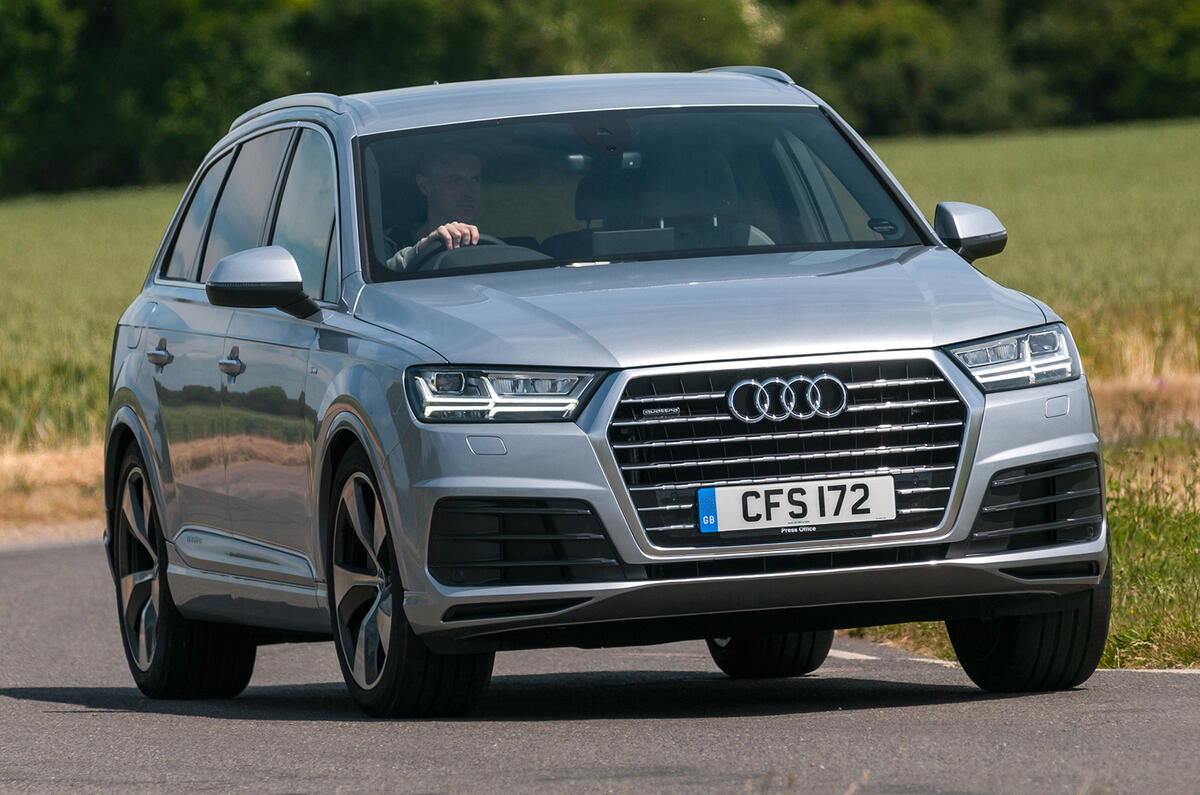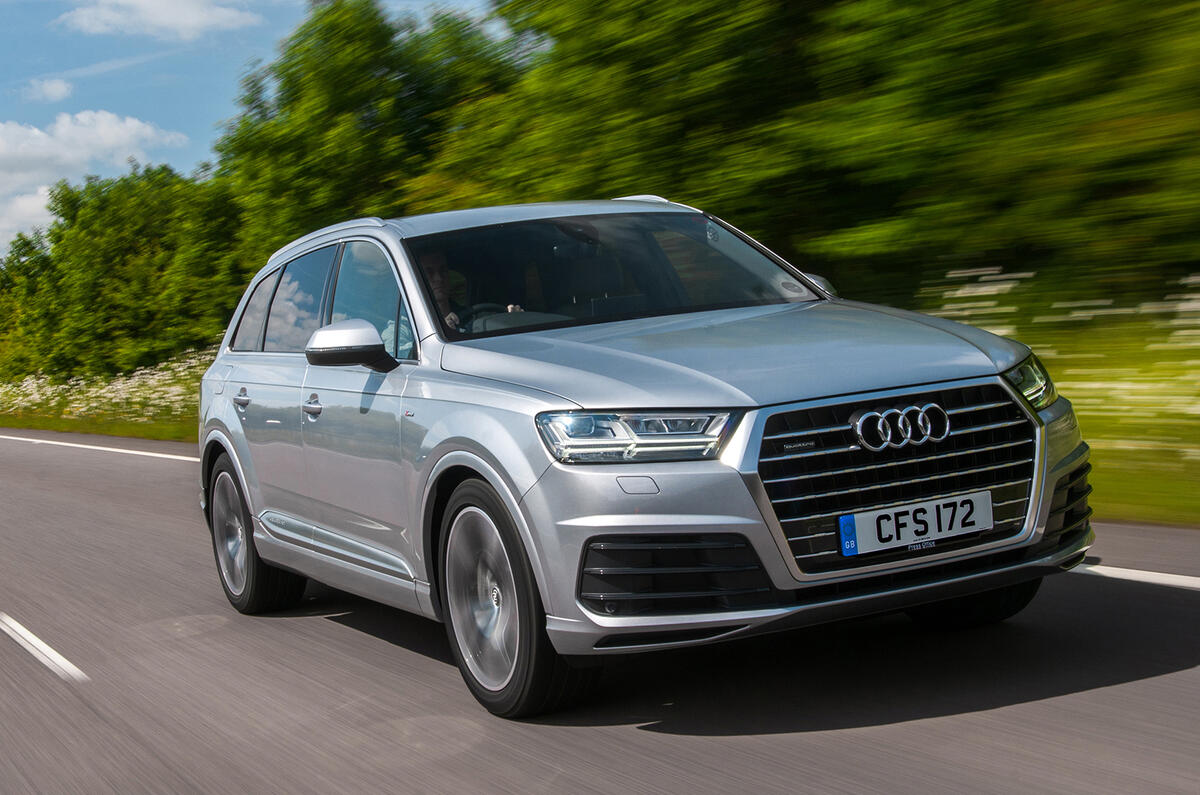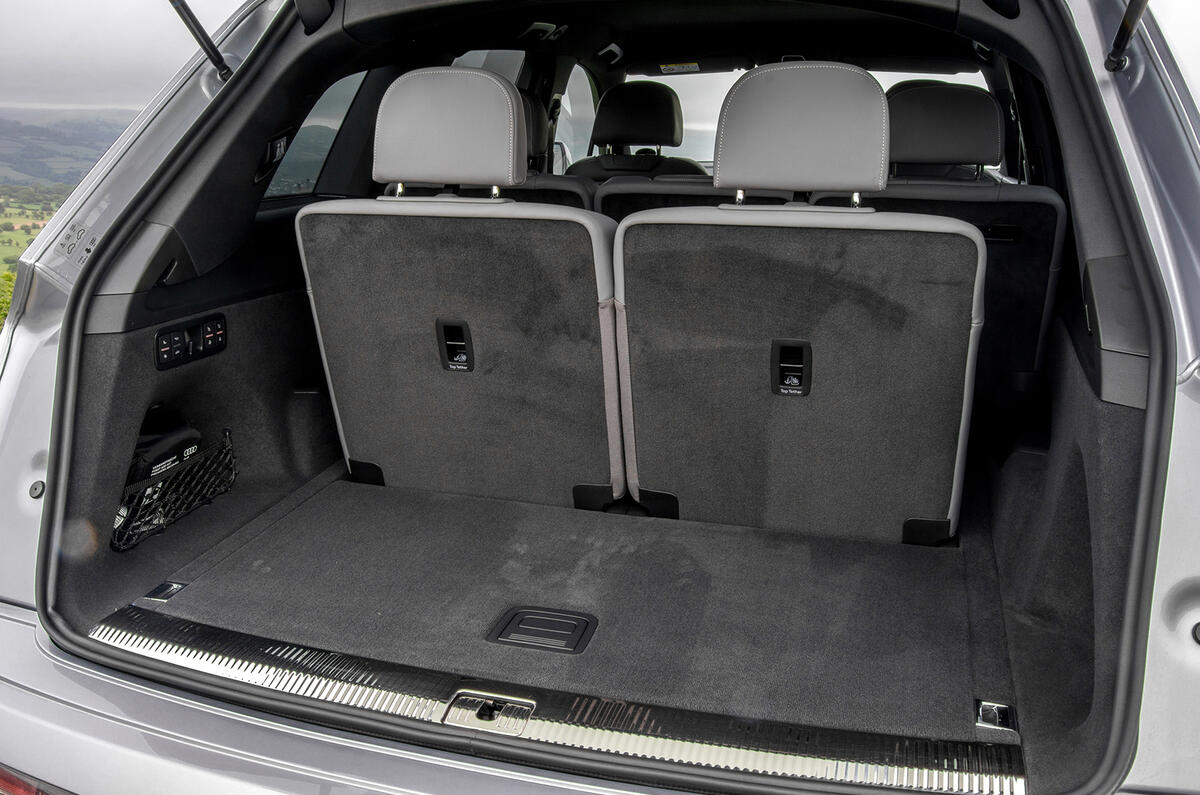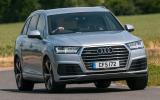An outstanding old-school Audi in so many ways, in terms of perceived quality, refinement, comfort, occupant space, on-board technology and remarkable ease of use. Almost all of the ways in which we praised the full-house diesel version last year, then. That said, this is perhaps not the canny buy you might expect it to be.
Even though the car doesn’t have quite the same imperious, immaculately smooth kind of performance as its rangemate, few could complain about how forcefully it gets up the road. The engine feels potent enough when accelerating the car’s mass from town speeds, and the eight-speed automatic gearbox selects its ratios cleverly when overtaking, keeping the tacho’s needle at, or close to, peak torque.
Wind the motor up to 3500rpm and the car’s mask of invincibility slips a bit, the V6 beginning to get breathless in the higher gears. But that’s only ever likely to be a factor when doing the kind of outside-lane motorway speeds for which Audi drivers are becoming notorious. Frankly, they’re speeds that any right-thinking Q7 owner would seldom even approach, such is the readily apparent maturity and refinement of the car’s character and the sweetness of its gait at a relaxed pace.
Equip the Q7 with adaptive air suspension, as came fitted to our test car, and you’ll find its ride indulgently supple in Comfort mode and its cabin isolation top-drawer at all times. Steering is averagely light and isn’t troubled by anything as potentially wearing as contact patch feel, but it’s fluent enough. Body control is respectable, and the car steers faithfully and securely - although it wavers vertically on its springs at higher speeds at times, potentially disturbing passengers if you hurry.
Cycle through the Q7’s more dialled-up drive modes and you’ll realise the folly of your actions quickly enough. The steering’s fluency becomes replaced by unhelpful weight and apparent stickiness and the buoyancy of that ride by a more fidgeting compromise which, while it boosts handling response and heave control a bit, isn’t worth the trade-off. At no time is the Audi actually uncomfortable, nor anything like it, but its dynamic calling card is undoubtedly less compelling while it’s pretending to be ‘sporty’.
The car’s supremely well-constructed interior exudes an aura of integrity and class that can be matched by no other large SUV. Its infotainment and convenience functions are second-to-none, too, and there’s room for even large adults to stretch out in both the first and second rows, with average-sized ones relatively comfortable in row three.


































Join the debate
Add your comment
Q7: 218 or 272; SE or S Line
The Mercedes is way too expensive; the D4 is dated; the X5 is too compromised as a 7 seater. The XC90 is a good car and has 7 full sized seats. But the base model was £870pcm - no discount and average resale value. The engine is harsh and the gearbox is slow.
The Q7 is
Q7: 218 or 272; SE or S Line
The Mercedes is way too expensive; the D4 is dated; the X5 is too compromised as a 7 seater. The XC90 is a good car and has 7 full sized seats. But the base model was £870pcm - no discount and average resale value. The engine is harsh and the gearbox is slow.
The Q7 is
Autocar wrote: The car’s
What utter tripe, the XC90 has a far more luxurious interior, is just as well built, and its third row of seats actually accommodate any size adult, and its touch screen info system is a thing of beauty. The XC90 is also the safest vehicle ever tested by NCap, and isnt that far more important in a 7 seater SUV. Also dont forget, the hybrid XC90 retains 7 seats, the Q7 doesnt.